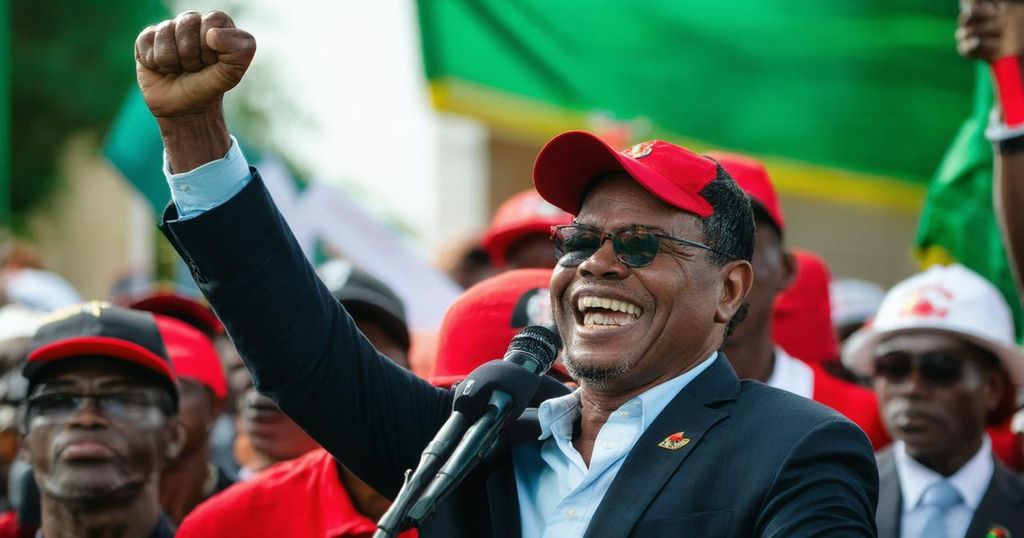Mozambique Presidential Election: Frelimo’s Daniel Chapo Claims Victory Amid Controversy

Mozambique’s ruling party, Frelimo, has secured a victory in the presidential election, with Daniel Chapo winning 71% of the votes. Despite the celebration of this victory, the election has been marred by allegations of rigging, violence against opposition supporters, and criticism from international observers, leading to a tense political climate within the country. Opposition leader Venancio Mondlane has vocally contested the results and organized protests in response to the alleged fraud.
The recent presidential election in Mozambique has concluded with a victory for the ruling party, Frelimo, despite significant allegations of electoral misconduct and violence. Daniel Chapo, who has relatively little political experience, emerges as the chosen successor to Filipe Nyusi after securing 71% of the votes. This election marks a pivotal moment in Mozambique’s history, as Chapo, at 47 years old, becomes the first president born post-independence since 1975. His main adversary, Venancio Mondlane, garnered 20% of the votes and has raised serious concerns about the integrity of the electoral process, claiming that the election was rigged. In response to these allegations, Mondlane has called for a national strike, aiming to honor individuals associated with his party who have been murdered amid rising political tensions. The unrest has been exacerbated by police responses to protests, which have reportedly included the use of live ammunition and tear gas, leaving many cities, including the capital, Maputo, in a state of unease. EU election monitors have echoed concerns about potential manipulation of the election results, highlighting discrepancies during the tabulation process. The international reaction has been swift, with leaders, including Zimbabwe’s President Mnangagwa, congratulating Chapo even before official results were finalized. The atmosphere in Mozambique remains charged, with calls for demonstrations continuing as the opposition challenges the legitimacy of the election results.
Mozambique, a nation that has experienced prolonged political strife since gaining independence from Portugal in 1975, is currently facing significant challenges related to governance and electoral integrity. The country’s history of civil conflict and political instability has left deep-seated issues regarding democratic processes. The recent elections highlight ongoing tensions between the ruling Frelimo party and opposition groups, with allegations of electoral fraud and violence against political opponents becoming increasingly commonplace. The election process has prompted scrutiny from international observers, which reflects a broader concern about the health of democracy in Mozambique and the implications of these elections on the nation’s future political landscape.
In conclusion, the election results in Mozambique have sparked widespread debate over the legitimacy of the democratic process amidst allegations of rigging and political violence. Daniel Chapo’s victory as the new president, while significant, is marred by claims from opposition leader Venancio Mondlane regarding electoral fraud and a call for national protests. The EU’s criticism of the election process, coupled with heightened tensions in the capital and calls for a national strike, indicates a challenging road ahead for Mozambique’s governance and civil stability.
Original Source: www.bbc.com








